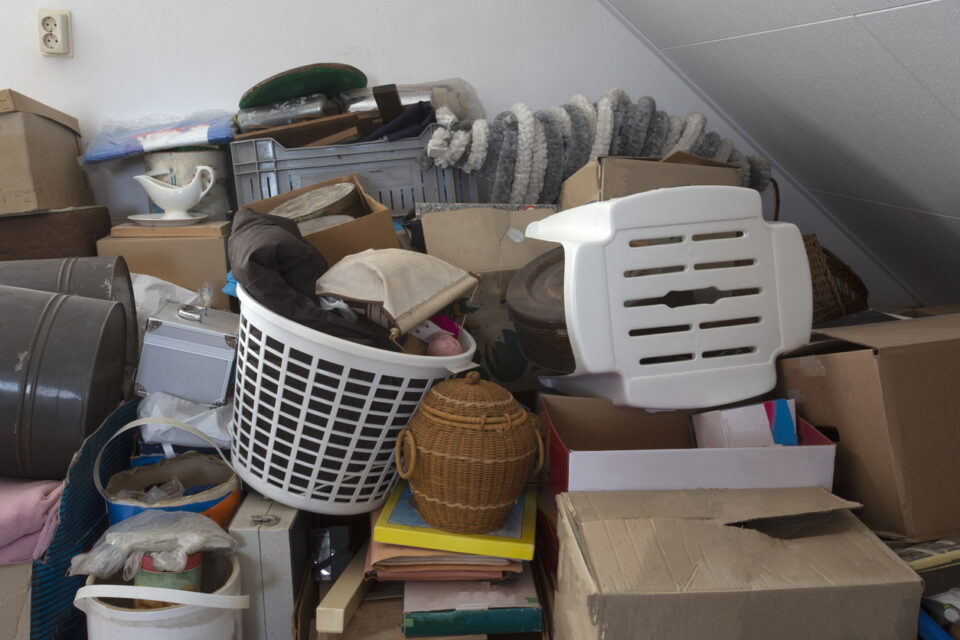Q: “We Suspect a Condominium Resident Has a Hoarding Problem – What Can Be Done to Humanely and Effectively Resolve the Issue?”

Hoarding is more than the accumulation of everyday clutter. The 2013 Diagnostic and Statistical Manual of Mental Disorders (DSM-5) lists ‘hoarding disorder’ as a distinct mental illness and characterizes it as “persistent difficulty discarding or parting with possessions, regardless of their actual value”. The over-accumulation of personal items in a condominium unit commonly attracts pests, causes foul odors to emanate from the unit, and presents a life-safety fire hazard to all residents.
While hoarding may remain undetected for a time behind the walls and closed doors of a condominium unit, the situation can escalate and pose a nuisance, such as transmission of foul odor, pest infestation, etc., and thus a safety and/or health risk to the entire community, including the affected resident. The issue of hoarding is only exacerbated by the COVID-19 pandemic as condominium residents remain cooped up in their homes.
Hoarding situations are unlikely to go away on their own and, if left unchecked, may even worsen over time. As such, condominium boards and management (if professionally managed) will need to intervene when a hoarding situation is detected. This can be difficult, as persons suffering from hoarding disorder may be unwilling to cooperate and clean out their units.
While each situation is unique, the following steps are a general outline to assist boards to effectively handle a hoarding condition in a condominium unit:
- Document the Issue: Detailed written records of all complaints, such as foul odor emanating from the unit or a pest infestation, should be kept. This will help foster early detection of hoarding issues and will be needed if legal action becomes necessary. Written complaints can also be the basis for levying a fine for noxious and offensive conduct in a unit (a common use prohibition in condominium declarations); however, fining alone is unlikely to cause a person with a hoarding disorder to voluntarily change their behavior. Fines are routinely used if there is no voluntary cooperation after step 2 below is attempted.
- Contact the Unit Owner and their Family: The board or management (if the association is professionally managed) should send a letter to the unit owner identifying the problem and directing that the unit be cleaned by a certain date (e.g., within 10 business days) or the association will exercise its rights under applicable law and the association’s governing documents to resolve the issue. If the unit is occupied by a hoarding tenant, the unit owner of the unit at issue should still be contacted because they have a vested interest in making sure that their unit does not fall into a state of disrepair and may even be able to assist in resolving the issue. Additionally, working with caring friends or family members of the resident can be an effective strategy to resolve the issue. As a courtesy, the board or management may also contact a local service agency, call the resident before sending the letter demanding that the unit be cleaned out, and / or recommend vendors that specialize in cleaning out units; however, as noted above, voluntary cooperation can be difficult to obtain.
- Engage Legal Counsel to Gain Access to the Unit: If the resident refuses to voluntarily clean their unit (or if the situation is sufficiently severe to warrant skipping the step of seeking voluntary compliance), the next step is to engage the association’s legal counsel to enforce association remedies, which may include issuing a demand letter to obtain access to the unit to have it cleaned out, and if the situation is not resolved, filing a declaratory lawsuit to obtain a court order for access to the unit to have it cleaned out or require that the resident clean out the unit by a date certain.
- Hire a Professional to Clean the Unit: Once access to the unit is obtained – either voluntarily or involuntarily via court order – a professional cleaning service should be engaged to clean out the unit. Pictures of the condition of the unit should be taken before any cleaning is done in case a dispute arises after cleaning is complete. Most condominium declarations provide that the costs for cleaning out units will be charged back to the unit owner, but the association’s governing documents should be reviewed to confirm.
Board members should be mindful that hoarding disorder is a mental illness and should rely on the association’s professionals to assist with resolving a hoarding situation. The above recommendations are intended to highlight common strategies for effectively handling a hoarding issue but are not an exhaustive list of all available remedies.